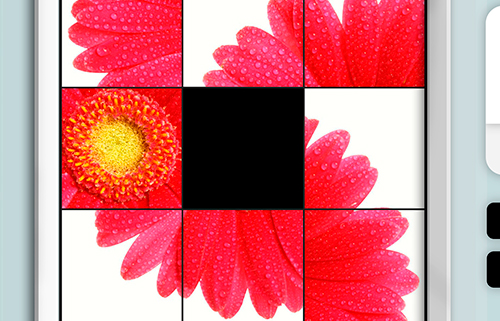
Multi-platform
Jigsaw: Brain Game
Cognitive brain training game
Play "Jigsaw" online and boost cognitive ability
Get access to this scientific brain training resource
Challenge your brain
Jigsaw is a brain game that stimulates a number of different cognitive skills. To advance in the game, we'll need to move the tiles back to their original shape. However, as the level of complexity of this brain training game increases, the cognitive demands will increase.
This brain game will automatically adjust to the level of each user as they train. Jigsaw is a scientific resource designed to continuously measure the user's performance and progress and adjust to each user, optimizing cognitive training. The brain game Jigsaw is suitable for children, adults, and seniors interested in stimulating their essential cognitive abilities.
How can the brain game "Jigsaw" improve your cognitive abilities?
Training your brain with brain games like Jigsaw stimulates specific neural patterns. The repetition of this pattern through training and exercises can help create new synapses and neural circuits capable of reorganizing and recovering weakened or damaged cognitive functions.
This game is for anyone who wants to challenge and improve cognitive performance.
1st WEEK
2nd WEEK
3rd WEEK

Neural Connections CogniFit
What cognitive skills can you train with the brain game "Jigsaw"?
The cognitive abilities that you can improve with this brain game are:
- Visual Short-Term Memory: Remembering the original image or the steps taken to shuffle it will allow us to undo them. To retain this information, we use our visual short-term memory. By playing Jigsaw it is possible to stimulate this cognitive skill. A good visual short-term memory allows you to retain visual information for a short period of time. We also use this cognitive skill in our daily lives, for example when we remember the beginning of a sentence read to understand its full meaning.
- Spatial Perception: In this brain game we use our spatial perception by determining which parts of the image go in what point of the grid. Improving our spatial perception helps us in our daily lives for example when walking down the street without bumping into other people.
- Planning: Planning is an essential cognitive skill in order to complete the different levels of this brain training game, as it is necessary to solve the puzzle in a certain number of steps, and planning can help us find the shortest way to solve it. A good planning skill can be beneficial to prioritize and make better use of our resources. It is crucial for many activities of our daily lives, such as organizing our day, our workload, etc.
- Non-verbal memory: Remembering the sequence of steps you have taken to undo the jigsaw will be helpful in knowing how to put it back together. We use this cognitive capacity when we learn a route or a series of automatic steps that we must follow to carry out an activity.
- Contextual memory: Remembering the original image composition is useful for solving jigsaw. Remembering the way information is presented to us is useful in our daily lives, for example, to remember whether the source of our information is reliable or not.
Other relevant cognitive skills are:
- Updating: In the brain training game Jigsaw it is very important to make sure that we are following the right steps, that we are not getting confused because we must solve the puzzle in as few steps as possible. This game helps us stimulate our updating skills. Having this cognitive capacity in good shape is essential to make sure our behavior is aimed at the goal we have set.
- Visual Perception: Recognizing the initial image or our visual perception can help us solve the puzzle. Playing Jigsaw stimulates our visual perception which in turn can help us recognize familiar objects, faces or letters.
What happens if you don't train your cognitive skills?
The brain is designed to reserve resources, which is why it tends to eliminate the neural connections that it doesn't use. This is why if a certain cognitive skill is not regularly used, the brain will not send resources to the neural activation pattern, and it will become weaker and weaker. This makes the cognitive skill less effective and more difficult to use in daily life.



